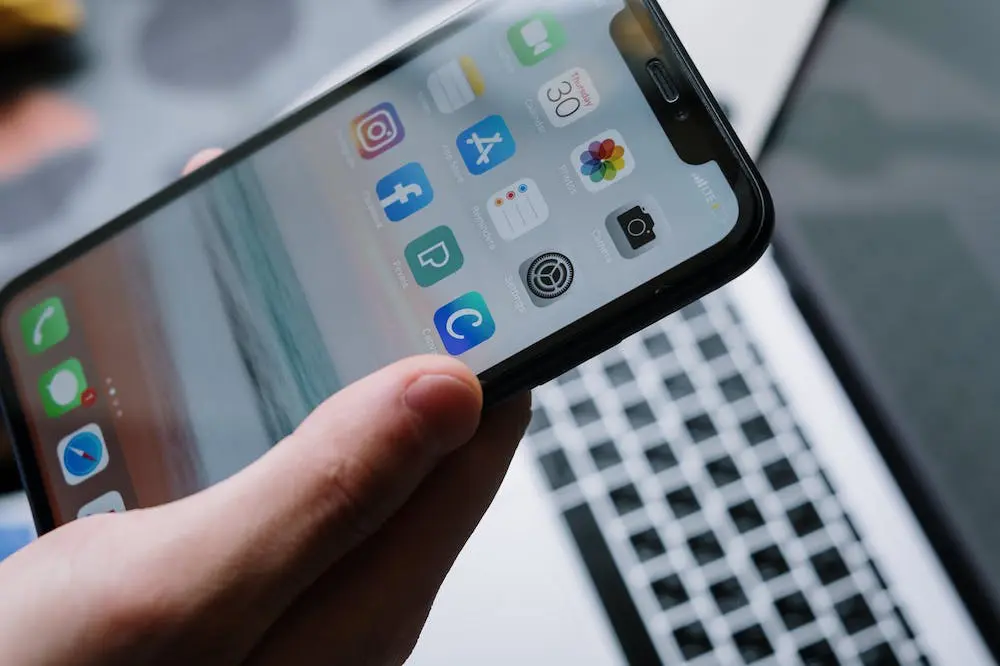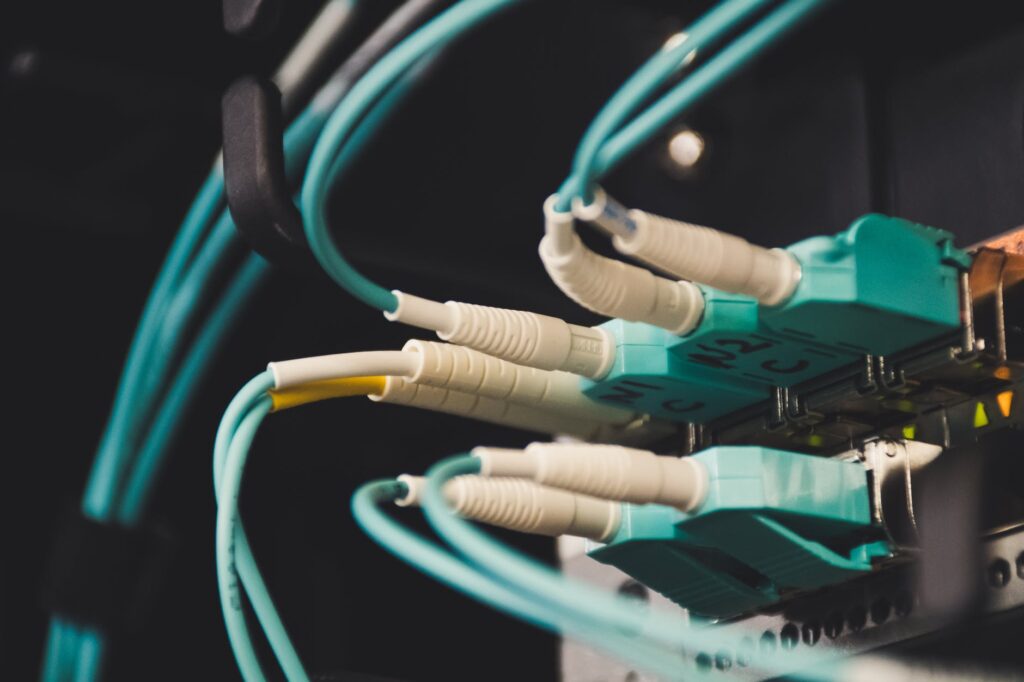Getting a job after prison (or trying to help a friend or family member find good jobs for felons) can be difficult, frustrating, and ostracizing — especially when you’re trying to get back on your feet and turn your life around. Jobs for convicted felons aren’t always as easy to find as they may have been before.
Luckily, working in tech can be a great opportunity for employment after incarceration — you just have to know where to look and how to apply. So if you’re wondering “Can a felon be a software developer?” I’m here to tell you absolutely! There are plenty of information technology jobs for felons, as long as you’re motivated and work hard to build the right skills.
In this post, I’ll give you an overview of some tech careers that might be easier for someone with a criminal background to get, including information about pay and how to get into that field. We’ll also touch on some tech companies that hire felons.
If you’re in prison or recently left and want to get your life on track, or you want to help a loved one get back on their feet with felon-friendly jobs, this post is for you.
Table of Contents
- Why It Can Be Challenging to Land Jobs for Ex-Felons
- 6 Best Tech Jobs for Felons
- Side Gigs/Freelance Jobs
- Tips for Finding a Tech Job
- FAQs
Disclosure: I’m a proud affiliate for some of the resources mentioned in this article. If you buy a product through my links on this page, I may get a small commission for referring you. Thanks!
Why It Can Be Challenging to Land Jobs for Ex-Felons
It can be hard to get jobs for ex-offenders. Nearly every company runs a background check prior to hiring someone, which can reveal your history and make employers skeptical.
Along with the stigma of having a criminal background, there are other obstacles that can get in the way depending on the nature of your crime, such as:
- Stereotypes/bias
- Company reputation
- Legal liability
- Safety concerns
- Possible effects on employee comfort/morale
Due to a combination of all these factors, formerly incarcerated people are unemployed at a rate of 27% according to research by the Prison Policy Institute. That’s higher than the total U.S. unemployment rate during any historical period, including the Great Depression.
Despite all of these obstacles, there is hope for finding employment after incarceration. While the unemployment rate is high compared to other groups, it still means that 73% did find second chance jobs for felons!

Fortunately, more and more companies are seeing the value of hiring people with diverse backgrounds and life experiences, which includes openness to hiring people with a criminal record. Plus, many companies no longer require a certain level of education (e.g., a bachelor’s degree) for diversity reasons, so self-teaching is a valid option.
The rise of felony friendly jobs is also because of the Fair Chance Business Pledge launched by the White House in 2016. Over 100 companies have signed the pledge not to discriminate against applicants who have a felony, including some large tech companies that hire felons, like Dropbox, Facebook, Google, Intel, Microsoft, and more. Read the story of how Slack hired three formerly incarcerated people into tech jobs.
Additionally, 37 states and 150 cities and counties have adopted the Ban the Box Campaign, which requires employers to remove the question on a job application that asks about an applicant’s criminal/arrest history and delays background checks until later in the hiring process.

And even if you don’t have tech skills yet, it’s totally possible to set your sights on one of these information technology jobs for felons! Nikkole Spurgeon, for example, learned to code while she was in prison, eventually landing a role as a web development team lead upon release. While Nikkole and her fellow inmates were still in prison, they practiced coding using paper pads and pencils. Listen to her story on the LTCWM podcast.
☝️ Back to the table of contents
Start coding now
Stop waiting and start learning! Get my 10 tips on teaching yourself how to code.
6 Best Tech Jobs for Felons
The common denominator with all of these jobs is that they are relatively easy to learn and you can begin building the skills faster than some other tech jobs out there. Since getting a job after prison is usually a top priority, the best jobs for felons are entry-level-friendly. However, many of them also have room to grow into high-paying jobs for felons once you’ve built experience!
1. Front-End Developer

A front-end developer works on the visual side of websites and apps, including what visitors see and interact with. Learn more about front-end development here.
This is one of the ideal tech jobs for former inmates because it is a relatively easy field to learn and get into. You can quickly start teaching yourself online with free and cheap courses.
Front-end developers don’t require a specific license or certification to start working. Plus, you could start out by freelancing to build your portfolio, so your skills will speak louder than your background if and when you seek a full-time job. It often takes 6 months to 2 years to land a front-end developer job after deciding to train for it.
- 💰 Average salary: $102,454/year
- 💡 Experience/skills needed: HTML/CSS, JavaScript, React
- 💻 A course to start learning it: Front-end Development Path by Code With Mosh
2. Mobile Developer

Mobile developers typically specialize in either Android mobile development, iOS, or cross-platform. They design, develop, and implement mobile apps you find on your phone or tablet.
This is a felon-friendly job because it doesn’t require a specific level of education or certifications/licenses. Instead, it often just requires a portfolio of work, which you can build as you learn.
Mobile developer jobs are also super in demand and there’s a shortage of skilled workers, so many companies are more open-minded when it comes to finding potential candidates. In fact, the demand for the number of mobile app developers is expected to increase from 17% to 24% by the year 2026. Similar to front-end devs, it usually takes a minimum of 6 months to learn enough skills to be a mobile developer, but can take longer depending on how much and how often you study.
- 💰 Average salary: $119,835/year
- 💡 Experience/skills needed: For Android: Java, Kotlin, Android Software Development Kit (Android SDK). For iOS: Swift or Objective-C.
- 💻 A course to start learning it: Developing Android Apps, a free course on Udacity. Check out these 21 other mobile development courses.
3. Database Administrator (DBA)

DBAs help make sure people like data analysts have access to all of the data they need to do their jobs. They design, organize, and troubleshoot databases and make sure they are secure.
This is a good opportunity for felons because many DBA jobs do not require a certain level of education. One way to prove your skills is to earn a DBA certification. Check out these AWS certifications to get started. Starting out as a junior DBA is often the best way to go so you can accelerate the process of getting a job after prison, and you’ll get to learn more when you work under a mentor/senior DBA. This is also a super in-demand job, which means companies may be more open to hiring people with a criminal background to fill their DBA roles.
- 💰 Average salary: $88,489/year
- 💡 Experience/skills needed: MySQL, SQL Server, Oracle, Azure, AWS shell scripting (Linux/Unix)
- 💻 A course to start learning it: Oracle DBA 11g/12c – Database Administration for Junior DBA on Udemy
4. Network Specialist

Network specialists typically develop, implement, and maintain networks, such as Local Area Network (LAN) and/or Wide Area Network (WAN). They may also provide desktop support for users and administer firewall, routers, and wireless access points among other tasks.
These can be great jobs felons can get, because instead of needing a formal education like a bachelor’s or master’s, you can get a certification that proves your skills, such as the CompTIA Network+ certification. You can also take a bootcamp-style course to level up more quickly. For example, NextGenT’s Full Stack Network Engineer bootcamp can get you job-ready in 4 months.
- 💰 Average salary: $54,992/year
- 💡 Experience/skills needed: knowledge of computer hardware and software, Active Directory, network troubleshooting, network security, etc.
- 💻 A course to start learning it: Networking Fundamentals Learning Path on Pluralsight
5. Technical Support Representative

Also known as an IT Support Specialist or Help Desk Analyst, this role is all about helping customers troubleshoot and use technical hardware and software more effectively.
These make great jobs for prisoners after release, since they’re entry-level roles that don’t require a lot of experience. It’s a great way to get your foot into the world of tech, gain experience, and start making connections at a tech company. Since customer service is the main skill you’ll need for this job, make sure to highlight any past customer service experience you have (e.g., waiting tables, call centers, retail, fast food industry).
- 💰 Average salary: $15.83/hour
- 💡 Experience/skills needed: Customer service, basic computer skills, patience, troubleshooting skills
- 💻 A course to start learning it: Technical Support Fundamentals on Coursera
6. Low code/no code developer

Low or no-code developers build applications without ever writing a single line of code (or only writing very minimal code). Instead, you use a user-friendly visual interface and drag-and-drop tools to create entire apps. Typing in “low-code” or “no-code” into indeed.com pulls up over 300 jobs!
This is a good work opportunity for felons because it can be a quick way to break into tech for people with no experience. No/low coding exposes you to the field of programming and can even help you hone real coding skills. You don’t need to know how to code, which makes it quicker to learn than programming. Plus, you can quickly start freelancing and help people set up their apps pretty much right away.
- 💰 Average salary: $80,760/year
- 💡 Experience/skills needed: Familiarity with no or low code platforms and an eye for design and UX/UI
- 💻 A course to start learning it: The Complete ‘No Code’ Developer Course: Build 23 Projects on Udemy
☝️ Back to the table of contents
Side Gigs/Freelance Jobs for Felons
A great way to build up your portfolio/resume and prove your abilities and stability is to start out with freelancing. Then you can use what you’ve learned to land a full-time job with a company (or keep freelancing if you enjoy it!)
Some of the perks for freelance jobs for ex-felons include:
- Easy to get started on freelance sites like Upwork. Check out these tips for ways to stand out as a web developer or web designer on Upwork
- Zero to little startup costs – a laptop is generally all you’ll need and you can buy a used one for a lot less!
- No background checks if you’re your own boss
But consider any downsides. For example, will a lack of traditional employment affect your parole status? Will an unstructured job where you create your own hours be doable/sustainable for you? (If prison made you good at being disciplined and following routines, that would be a benefit!)

Note that you can often be self-employed while on probation, but you need to prove that you’re working through income statements, tax statements, a letter from your freelance clients, etc. If you’re currently on probation, make sure to check if freelancing is a suitable employment option.
Here’s how to make your first $1,000 freelancing. You can also check out this freelance starter guide!
Freelance Starter Guide
Sign-up to get my ultimate guide for getting started as a freelancer.
☝️ Back to the table of contents
Tips for Finding a Tech Job for Felons
Getting a job after prison can seem intimidating, but fortunately there are resources available and tips that can help.
- Look for jobs on felon-friendly job boards:
- Join a job-placement/training/re-entry program for prisoners/felons:
- Try to get job referrals: An employer may be more likely to hire you if you’re referred by someone they know and trust. Ask friends/family for referrals. Here’s a guide to getting job referrals.
- Rule out unobtainable careers: Avoid applying for jobs in certain industries if you were convicted for a related crime. For example, do not apply for a tech job at a bank if you have committed a financial-related crime, like theft or fraud. Do not apply for a job that requires a security clearance.
- Apply at companies that have felon-friendly jobs programs or openly hire ex-cons: And by the same token, avoid applying to jobs that have a specific statement in the job description saying they don’t hire felons as it will be a waste of your time.
- Look for roles where your life experience could be an advantage: Just like a clear passion for marathon running would increase your chances of getting hired by a fitness brand, you can connect your past to the roles you want. Having personal experience of living in poverty, with a disability, or in foster care could increase your chances of being hired in a tech role for a social work firm or nonprofit, for example. What have you struggled with that you could help others with? Of course, make sure to avoid any environments that could cause you any problems or temptations (e.g with drug use).
- Be honest upfront: Disclose your criminal history to the employer during the application process. This can be done via the cover letter or during interviews. There also may be a checkbox you can select while applying.
- Highlight soft skills: This can include things you learned in prison or as a result of reflecting on your past — things like work ethic, perseverance, motivation, conflict resolution, etc. Again, cover letters and interviews are great times to reference these.
When it comes to seeking employment after incarceration, just do your best to own who you are and all the experiences that have shaped you. Your mistakes don’t define you!

☝️ Back to the table of contents
FAQs About Getting Tech Jobs for Felons
Let’s close by answering some common questions about tech jobs felons can get.
Can a felon get a cybersecurity job?
Since government cybersecurity jobs require a security clearance, the government will consider a felony an automatic rejection. However, it may be possible to get a cybersecurity job as a felon in the private sector. So yes, it’s certainly possible; you just have to apply to the right kind of company in the right industry. That said, since cybersecurity positions require a high degree of trust, you will face a more uphill battle looking for cybersecurity jobs for felons.
Are there tech companies that hire felons?
Yes, many tech companies will consider convicted felons for employment. For many tech companies, your employability may depend on several factors such as the nature and severity of your crime, if the crime is related to the industry, and how long ago it was. As mentioned earlier, many tech companies have already signed the Fair Chance Pledge.
Does Google hire people with a felony?
Google is open to hiring people with a criminal background. Google has signed the Fair Chance Pledge and includes this statement on their careers website: “We also consider qualified applicants regardless of criminal histories, consistent with legal requirements.”
Can a felon be a software developer?
A felon can definitely become a software developer — by learning the right skills, creating a portfolio of work, and applying to the right jobs, industries and companies.

☝️ Back to the table of contents
You Can Find Good, High-Paying Jobs for Felons
You are so much more than just your past mistakes. Fortunately, many companies care more about the skills and life experiences you bring to the table than your past. If you’re dedicated to pursuing a career path in tech, make it your mission to work hard and show them what you can do!

